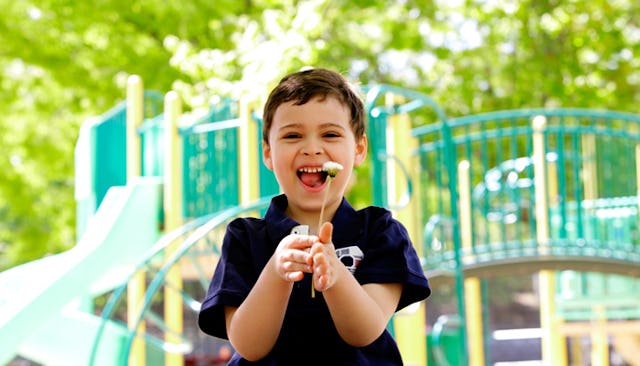5 Things I Wish People Knew About My Nonverbal Child

In a lot of ways, my 4-year-old son is a typical kid: He loves to run and play. He enjoys a good tickle fight, dancing to music, playing games on my phone, and hearing a good bedtime story. His autism, however, sets him far apart from his peers. Having a child that doesn’t speak is a big enough challenge. A lot of the time, unfortunately, the challenge comes from the people around him. They think that because he can’t talk, he is essentially a waste of space. They couldn’t be more wrong. Here are five things I wish people understood about my son:
1. He doesn’t talk. That does not mean he cannot hear you. There are actually two types of language skills: expressive and receptive. We’ve had his hearing tested, and his receptive language (what he hears) is at least normal in one ear. I am guilty of forgetting this, too, and I am sure that the first thing he will regularly say if he ever starts talking is swear words he picked up from being in the car with me. Don’t talk about him like he isn’t there or use baby talk. Talk to him like you would any other kid. We do. He knows when people are underestimating him, and he plots accordingly.
2. He has a sense of humor. Actually, he’s a bit of a smart aleck. He has a good grip on sarcasm, which is impressive for a 4-year-old. I’ll pay someone a compliment, and he’ll laugh and shake his head. Then there’s his favorite joke, which is pointing to the wrong object when the therapist asks him to touch something specific. He also puts his hands behind his head in speech therapy and stares at the clock. Either he can tell time on an analog clock, or he at least knows when his half hour is up. Once he even put his hand out like he was going to give the speech pathologist a high five, and then ran it through his hair instead. He cracked himself up with that one. At a famous autism clinic during an evaluation, he started to do a puzzle while the doctor’s back was turned. He stopped, with one piece left, the moment she turned around. Then he acted like the puzzle wasn’t even there. If he could have whistled as he was looking all around the room, he would have.
3. He’s not Rain Man. It’s great that you saw that movie but not all autism works like that. He’s not going to tell me how many toothpicks I just dropped on the floor. He’s not going to compose a symphony on his toy piano. He doesn’t get a magical talent to compensate for the fact that his brain is wired differently. And even if he did, I’m not going to make him whip it out like it’s a party trick.
4. He can read people like it’s a profession. He is an adorable hustler. He will pick the sucker in the room and play them like he’s a pool shark. He knows that the quickest path from A to B is not a straight line but making somebody else do the walking for him. It works, too. He has played teachers, therapists, and family members. His cuteness is hard to resist but—as I actually had to tell a teacher’s aide once—no, I do not sit there all day and just hold him. He is 45 pounds and 4 feet of wriggly, energetic boy. You try holding that all day long.
5. He is more than his disability. You may just see the kid who is quietly staring off into space or flapping his hands, but he is so much more than that. He is a real little boy who has trouble communicating. Do not underestimate him, not just because all people should be treated with respect, but because you’d miss out on knowing a really great kid.
This article was originally published on